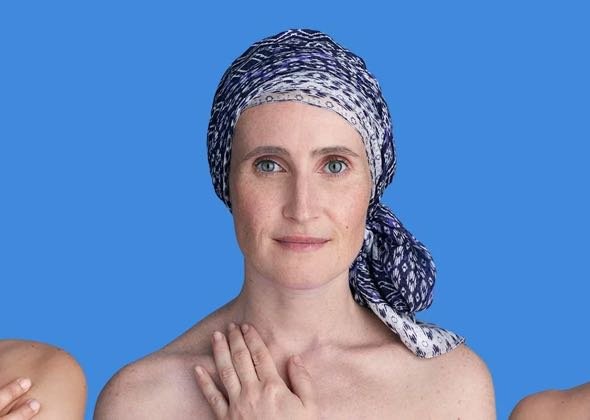WHAT EXACTLY IS SLEEP?
For most of us, the answer would appear fairly simple. It’s when you doze off and are unaware of your surroundings for a period of time. After a while, you wake up, hopefully feeling energised and refreshed. In more scientific terms, sleep is a recurring state of altered consciousness and reduced interactions with our surroundings in which our bodies’ sensory functions and voluntary muscles are inhibited.
The precise processes at work in the brain and the rest of the body during sleep are complex and still being researched today. Read on for an overview of what happens during sleep, and why those hours of rest are quite so important, for adults and particularly in children.
WHAT ARE THE STAGES OF SLEEP?
As we sleep, we cycle between two distinct kinds of sleep: REM (rapid eye movement) sleep and non-REM sleep. It all starts with non-REM sleep, which is made up of 4 distinct stages.:
- The first is an in-between phase between waking and sleeping
- The second is light sleep, in which your heart rate and breathing are regulated and your body temperature drops
- The third and fourth stages are deep sleep
- We then cycle into REM sleep, characterised by rapid eye movements behind closed lids. During this phase, our brain waves are actually quite similar to those we have while awake. Our breathing rate increases, and our muscles are temporarily paralysed as we dream. We usually cycle through these two types of sleep four or five times a night. This pattern of sleep is true for both adults and children.
WHY IS SLEEP SO IMPORTANT?
Sleep is a crucial restorative proces
As we sleep, both the body and the brain undergo restoration and repair. During sleep, the body is able to heal itself and remove metabolic waste products that build up during periods of activity.1 This is particularly true of the brain, where toxins such as reactive oxygen species are “flushed out” at a faster rate during sleep compared with wakefulness.2 In both cases, the “detox effect” of sleep is thought to be due to the reduced rate of body metabolism, allowing restorative processes to take over.
The brain remains quite active during sleep, and quality sleep has been shown to be essential for the laying down and consolidation of new memories3. Beyond detoxifying the body, sleep is also a period of growth and repair. Anabolic (growth-promoting) hormones such as human growth hormone are preferentially secreted during sleep. This is thought to be the reason why sleep is essential for proper wound healing4. New functions of sleep are being discovered all the time, for example it is now known to have a vital effect on maintaining the immune system and the way hormones function in our bodies.5
WHY SLEEP IS ESPECIALLY IMPORTANT
FOR KIDS
Sleep is essential to children’s health and development
Sleep is essential to the health and wellbeing of both adults and children, but the latter are especially dependent on quality rest and longer sleeping hours. Click HERE for information on the recommended sleeping times for children of different ages
Studies have shown that kids who regularly get enough quality sleep have improved attention, behaviour, learning, memory, and overall mental and physical health. Not getting enough sleep can lead to high blood pressure, obesity and even depression. Since growth hormone is preferentially secreted during sleep, chronic (long-term) sleep deprivation can interfere with children’s growth too.
Click HERE to find out more about sleep’s overall impact on health and quality of life
ATOPIC ECZEMA-PRONE SKIN:
A TOP CAUSE OF SLEEP LOSS IN CHILDREN
Atopic dermatitis can interfere with children’s sleep
If your child has atopic dermatitis (atopic eczema), this is not to be overlooked as a potential cause for sleep disruption. 90% of children with atopic eczema-prone skin itch and scratch during the night, causing them to lose a full hour’s sleep each night. Part of their bedtime routine should include suitable atopic-prone skincare products such as LIPIKAR Syndet AP+ at bathtime followed by a rich emollient like LIPIKAR Baume AP+ before bed. These simple steps can reduce scratching by half and set your child up for a restful night… and a much perkier morning after!
Click HERE to read more about Children with ezcema and sleep problems
And HERE for details of a clinical study on how eczema-prone skincare can improve sleep quality and overall quality of life
1 Raymond Cespuglio, Damien Colas, & Sabine Gautier-Sauvigné, "Energy Processes Underlying the Sleep Wake Cycle"; Chapter 1 in Parmeggiani & Velluti (2005).
2 "Brain may flush out toxins during sleep". National Institutes of Health. Archived from the original on January 16, 2014.
3 https://www.ninds.nih.gov/Disorders/Patient-Caregiver-Education/Understanding-Sleep
4 Gümüştekín K, Seven B, Karabulut N, Aktaş O, Gürsan N, Aslan S, Keleş M, Varoglu E, Dane S (2004). "Effects of sleep deprivation, nicotine, and selenium on wound healing in rats". International Journal of Neuroscience. 114 (11): 1433–1442. doi:10.1080/00207450490509168. PMID 15636354.
5 "Sleep-wake cycle: its physiology and impact on health" (PDF). National Sleep Foundation. 2006. Retrieved 24 May 2017.




